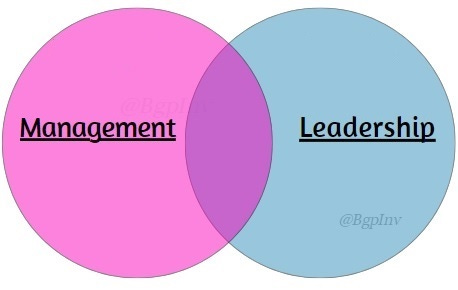Servant Leadership
If the term “servant leadership” sounds like a befitting example to a perfect oxymoron, its perhaps time for a gentle reminder about what leadership actually means...
“A great leader is seen as a servant first”
– Robert Greenleaf (as published in “The Servant as Leader”)
NOTE: This piece of my work is heavily inspired by Greenleaf and his works & I highly recommend everyone who is a leader or aspiring to be to go ahead and include this into their reading list (Find the LINKs below).
There’s so often a debate over matters concerning leadership and what defines the values great leaders ought to possess and it more often than not comes down to one’s style as a leader.
I also happened to cover a topic on a similar vein over one of my articles called “what’s your leadership style?” https://mgmtinc.substack.com/p/whats-your-leadership-style where I refer to various styles as employed by leaders across the world with an explicable onus and as applicable to leadership at startups mostly early-stage and to some extent growth-stage.
But, has the ask changed over the years when one talks of leadership?
Well, most certainly, it has and perhaps for the better.
With the turn of tide about a decade and a half back and the natural tilt towards establishing, maintaining and functioning as a cohesive unit, the boss-subordinate relationship was shown the door and many of the leaders back then did have a lot at stake as they had to adapt to this new style whose success seemed to be rooted in collaboration and that was never going to be possible without employing an acute sense of empathy.
Although common belief suggests that leaders totally are aware of what falls under their purview, which is to be able to lead / drive teams towards those outcomes & given that scenario there shouldn't a problem at all with the management bit as it is largely about "delegating".
The problem is with the common area as there could be many unknowns & also how that totally depends on environmental factors and could be situational & subject to change.
“Leadership is the area found at the perfect intersection of craft / art & analytics / logic”
Analyzing the VENN:
At a startup, the role overlaps may cut out that distinction entirely
At MNCs with really large teams (100+) it'd be about delegating but prone to a burden of linking down (zoom-in, zoom-out) very often
At perhaps growth-stage startups or orgs. with mid-sized teams the struggle is real as the ownership & accountability could look totally unmanageably messy
But here’s the bottom-line. There could really be no respite for any leader irrespective of the situation / team / organization / business vertical they are operating under. If anything, it is down to how comfortable one is with handling messy situations as each one of those could have a totally different root cause.
“Good leadership is never easy and if anything, it is down to the attitude of the leader”
So, given these styles of leadership what’s one style that could generally fit in irrespective of where one seems to be operating at?
Servant Leadership
The term was coined by Robert K. Greenleaf in his seminal 1970 essay, "The Servant as Leader". This happens to be the first installment of a series of 4-essays, the subsequent ones talking about:
Institution as a Servant
Trustees as a Servant
Teacher as a Servant
Only if a leader understands and lives by the motto of servant leadership will they respond to other leaders freely holding them at the same trust levels unfettered by any inhibitions whatsoever.
But prior to that just as Greenleaf puts it, there could be a lot of confusion on how a leader could be a servant at the same time, which are rooted in how a leader could be perceived as a servant or vice versa which leads to these classifications:
Servant-first
Does a leader have to be a servant at first?
How can a leader possibly operate and effectively lead when they are a servant?
How does the responsibility fit in hierarchically with the other roles in the organization?
Leader-first
Does a person have to be a leader at first, putting leadership at the helm?
How can a leader even act as a servant?
How does the leader respond to requests from higher-ups, does he lead or serve?
Let’s understand this over a deep-dive and by establishing the key differences between these 2 styles.
A leader is a servant at first and there is no better way to think of leadership given the current parlance of collaboration over XFN operating alongside high performing product teams at a fast paced work environment.
Remember:
If you are an aspirant who is looking to break into product roles it ought to be obvious to you and you perhaps already understand the gravity “influencing without authority” carries over your regular workflow. If you’ve got to be able to achieve that to perfection, servant leadership is surely the way forward which ought to accentuate & become a primary skill when you plan to take your career ahead steering your way up the ladder into those leadership roles.







